James 1 and St Aidan of Northumbria
Reflection for Wesley Uniting Church, Forrest
The letter of James exhorts followers of Jesus to have balance in their discipleship.
To have faith in Jesus, trust in him as Divine, Son of the Divine, way into new life.
AND
To act like Jesus, following his teaching and example in acts of compassion, reconciliation, justice, and worship of God.
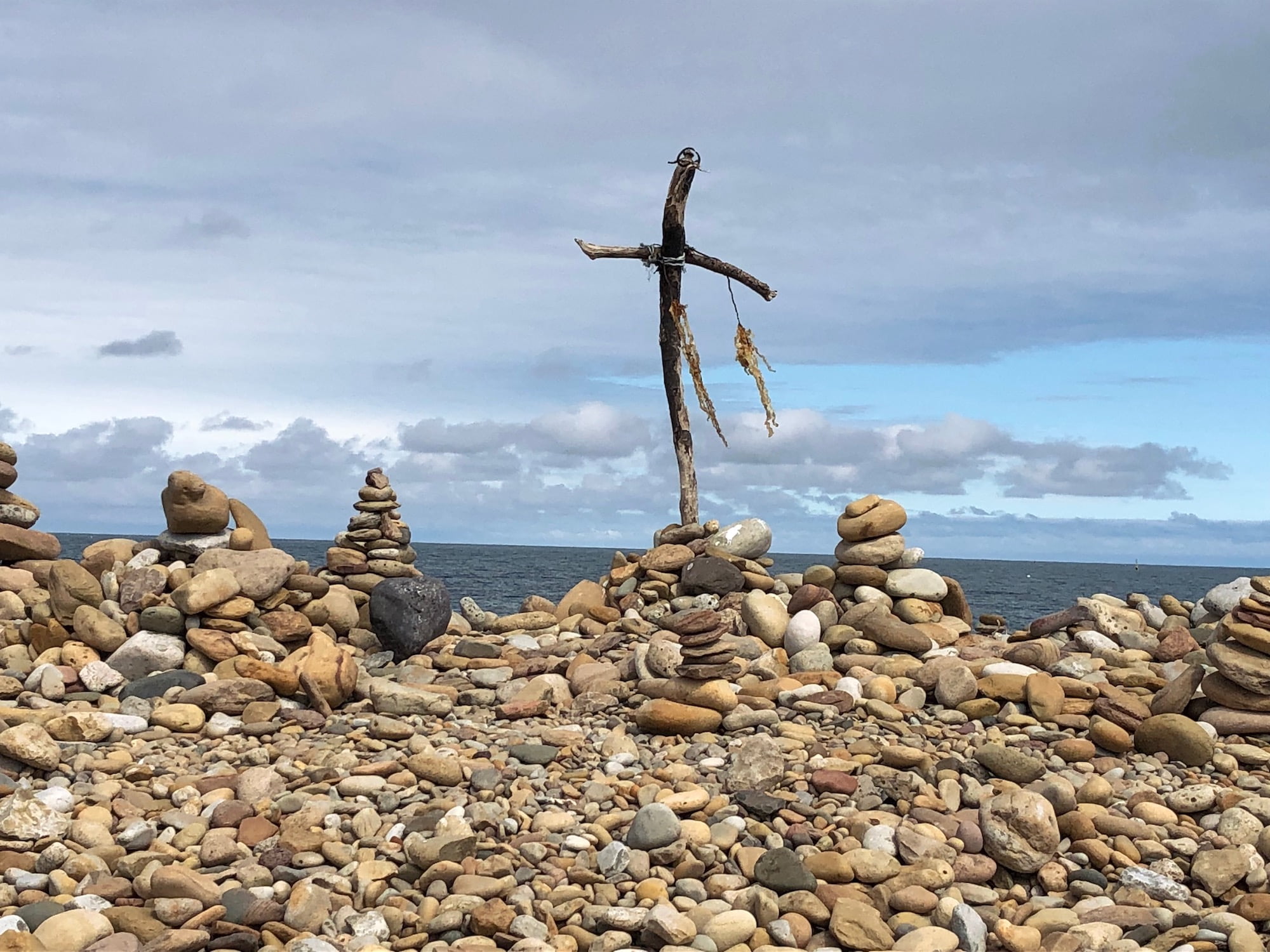
When our Christian discipleship is out of balance, when communities emphasise one element of discipleship over the other, for James, the community risks its ‘friendship with God’.
Can we take a moment and pause to appreciate that phrase: our friendship with God. We know how to be friends, to see each other, listen to each other, spend time in company with each other through the tough times and celebrations and all the mundane everyday life in between. What a picture of mutual delight and care to have for our relationship with God: friendship. love. sharing in each others’ stories.
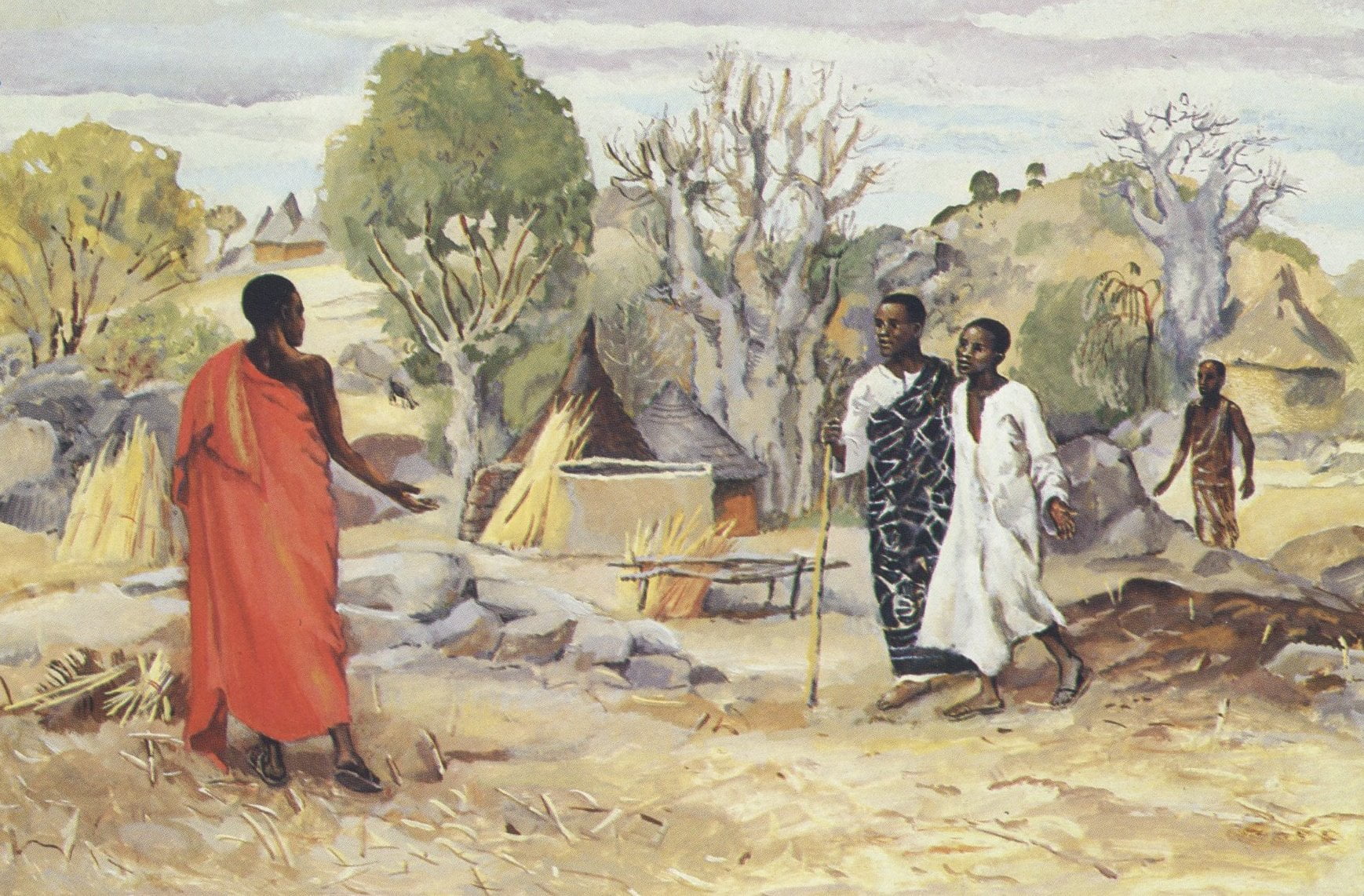
Wisdom: Listening for embodiment
Our reading from James began at verse 17. Here, we pick up in the midst of a discussion of the source and nature of the wisdom that guides the community to whom James is writing.
The source (v.5) is God. and if we ask God for wisdom, James reminds us, God will give it, and give generously.
Wisdom is endurance through trial, testing, temptation, and God is there in the endurance, the resistance, the staying true to the way of life.
Balance: trust the source – faith; resist and stay true – action. That is the rhythm that carries through the verses we hear today.

We are reminded of God’s own endurance, steadfastness, staying true: verse 17 says that in God ‘there is no variation or change’. In this we trust, have faith.
Then we are exhorted to action: quick listening, slow to speak, slow to anger.
I think we understand the idea of being slow to speak and slow to anger. But what is quick listening? The quickness is the readiness to enact the word we have heard from God, to embody our faith in our actions.
Faith – welcoming the word that has power to save your souls, as James says.
Action. To hear and not enact the word is like glancing in the mirror and forgetting yourself the moment you turn away.
Blessing is found in quick listening – hearing so as to embody the word. Blessing is found in looking at the law of liberation and taking it in, taking it with you.
Blessing comes to us through faith and action, through trust and living with trust in God.
There’s more examples of actions in which healthy discipleship is evident: taking care with speech, taking care not to be deceived, taking care of orphans and widows in distress.
Orphans and widows are a well-known biblical metaphor for society’s most vulnerable. ‘To care for the poor and powerless is the hallmark of God’s covenant-keeping people,’ says commentator Robert Wall. ‘To abandon them risks God’s displeasure’ – which we find in James 2:12-13.

Healthy discipleship is evident in an alternative posture, or way of being to that of ‘the world’. An alternative way of wisdom: wise responses to life are those that embody faith in God.
James uses the term ‘perfect’ in his discussion. The source of the law – which is God – makes the law ‘perfect’. And ‘perfect’ also ‘signifies the goal of Christian existence, formed in faithful reception of God’s gifts and in response to spiritual tests.’ (again, this is from Robert Wall) ‘A “perfect law”, then, is a “word of truth” that “saves your souls”; and the wise response is to obey such a law and live.’
Perfect. Whole. Healthy. Balance.
Robert Wall also sees a link here with Jubilee in the Torah – the year of liberty. This ‘year of liberty’, this future hope, is encased in the language and ideology of ‘perfect’, of ‘balance’. It’s an encouragement to hold on through trials and temptations, to hold on to wisdom, Torah, the Way of God.
And it is not enough to trust that God will bring this realm to fulfillment – our faith is complete as we enact it, as we participate with God in bringing a new way, a peaceful realm, into being.
faith. and. action. each is incomplete without the other, we are taught by James.
faith and action.
St Aidan of Lindisfarne
In Northumbria, on the north west of England, in the 7th century of the Common Era, Oswald became king. Oswald and his siblings had been of the royal family of Northumbria, but exiled as children to the Scottish Island of Iona after a battle for power. There, in a monastery founded by the Irish monk Colmcille – or Columba, Irish names feeling strange in the mouths of foreigners – Oswald grew up. He learnt to speak Irish fluently. His faith in God was shaped by Irish Christianity – quite different to the Roman Christianity was practiced in much of England. Though no Christianity was practiced much in Oswald’s homeland of Northumbria anymore.
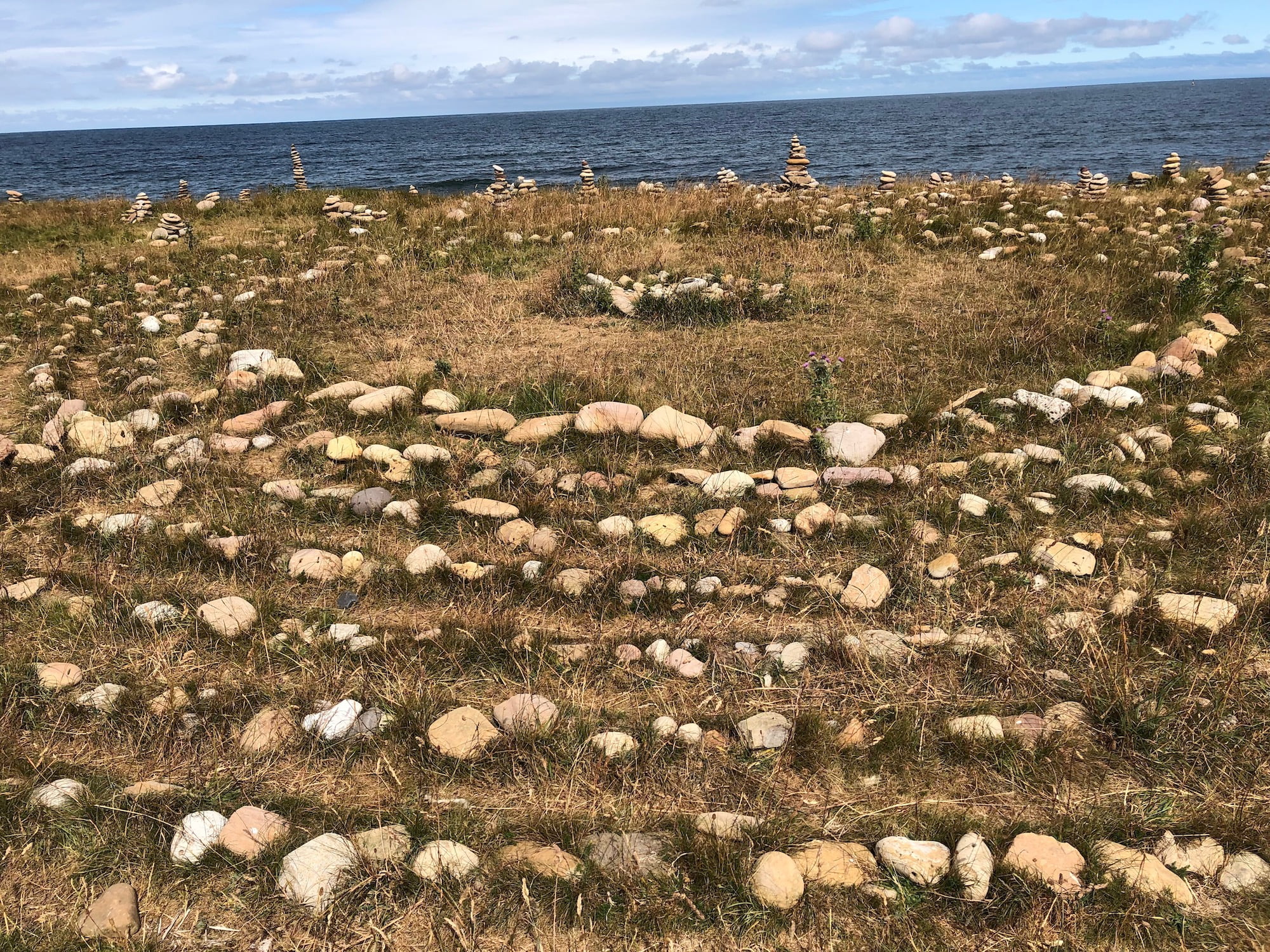
But as king, Oswald determined to bring back the practice of Christian spirituality in Northumbria. Not the Roman Christianity of the kingdoms around them, but Irish Christianity. Irish Christianity was more gentle, generous towards other kinds of faith and religious practice, less certain their path was the only one to God.
The person who worked with Oswald to teach the people the way of Jesus again was Aidan. Aidan was born in Eirann – Ireland – like Columba. And like Columba and Oswald, he had lived for some time in the monastery of Iona.
Aidan chose the island of Lindisfarne to be home for his community. Oswald’s castle was nearby, which was handy, as the king often acted as Aidan’s translator while he learnt the language of England.
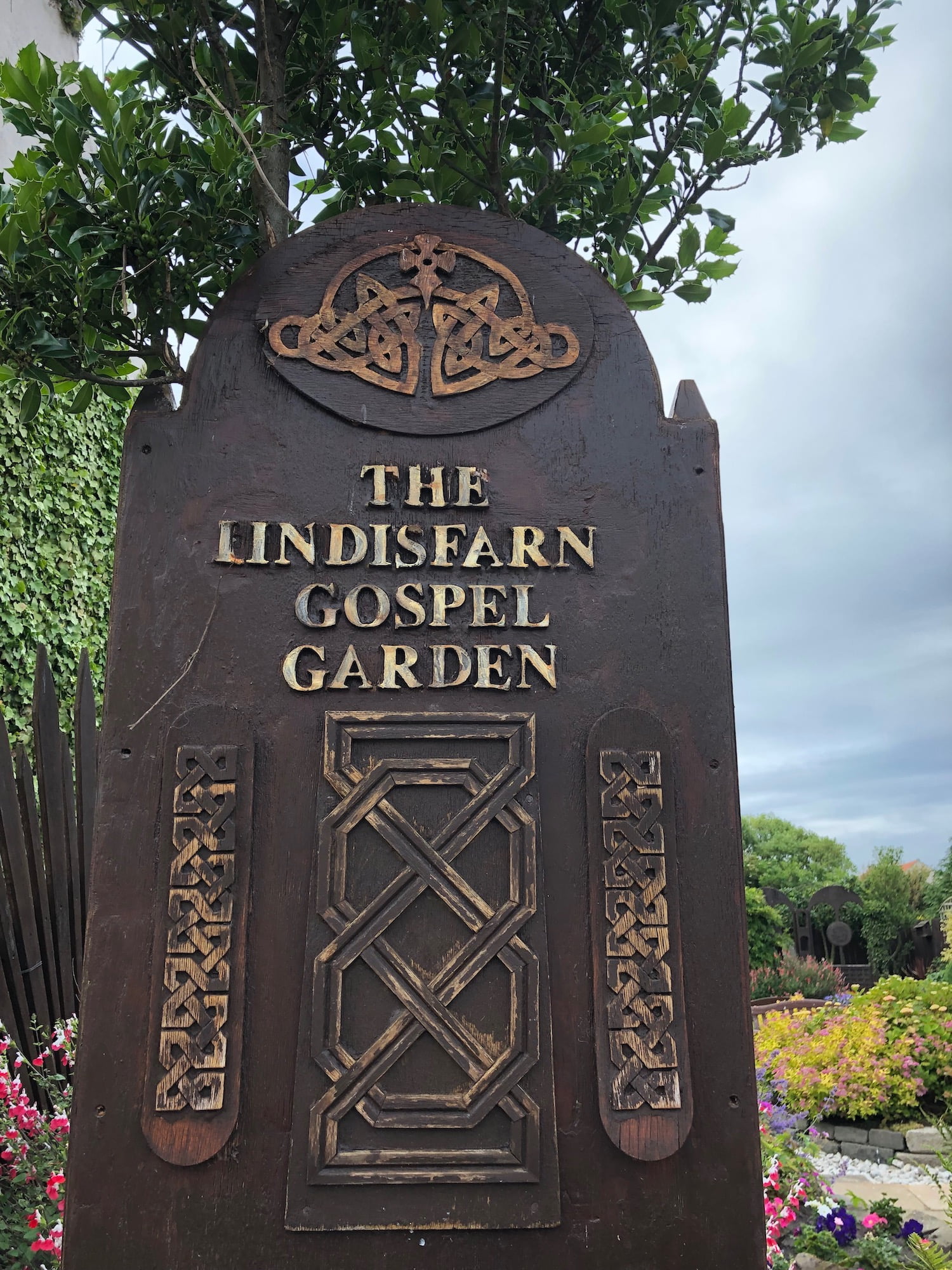
But Aidan spent a lot of time away from his new home, walking from village to village across the kingdom. Wherever he went, Aidan spent time listening to the people, to their stories, before he shared stories of Jesus that invited them into the Divine Mystery. He spent time in the villages getting to know the people, learning how they lived, what were their delights and their challenges. Aidan built friendships, relationships of love and respect wherever he went. Gently, Aidan invited these people he grew to know into the mystery of God, the story of Jesus, who brought God among us and offered newness of life.
Life was harsh in the 7th century. People didn’t survive illnesses that are easily treatable today, and children often grew up without their parents. As Aidan went from village to village, people would share what money they could with him to support his work among the people. Aidan used some of that money to take in orphans, give them shelter, food, and education. Aidan was kind and generous, caring for the most vulnerable in the land.
In that time, people were often forced into slavery. Sometimes this was a sentence for a crime. Sometimes, it was unjust, the oppression of the poor by the rich and powerful. When Aidan came across slaves unjustly, unlawfully enslaved, he would use contribution money to pay the slave owners to set those slaves free. Many of those freed slaves joined Aidan’s community on Lindisfarne, or in other monasteries he set up through Northumbria. They gained an education, and became monks or priests, themselves then caring for communities in the way Aidan cared for his.
The story Aidan told was the story of the God in whom Aidan had faith.
Aidan’s actions were the embodying of that story, the love, care, justice, of God.
Aidan, in the 600s was living the balanced discipleship, the wisdom, that we hear encouraged in the letter of James from the first century.
In the 20th and 21st centuries, we had for more than 50 years a congregation in our neighbourhood, in our parish, that bore the name of Aidan, St Aidan as he has come to be known. Many people joined together in that congregation to share and encourage each other as they trusted in God. Many people joined together in that congregation to embody love, care, peace in their community.
Like a torch, a light on, if not a hill, at least a rocky knoll.
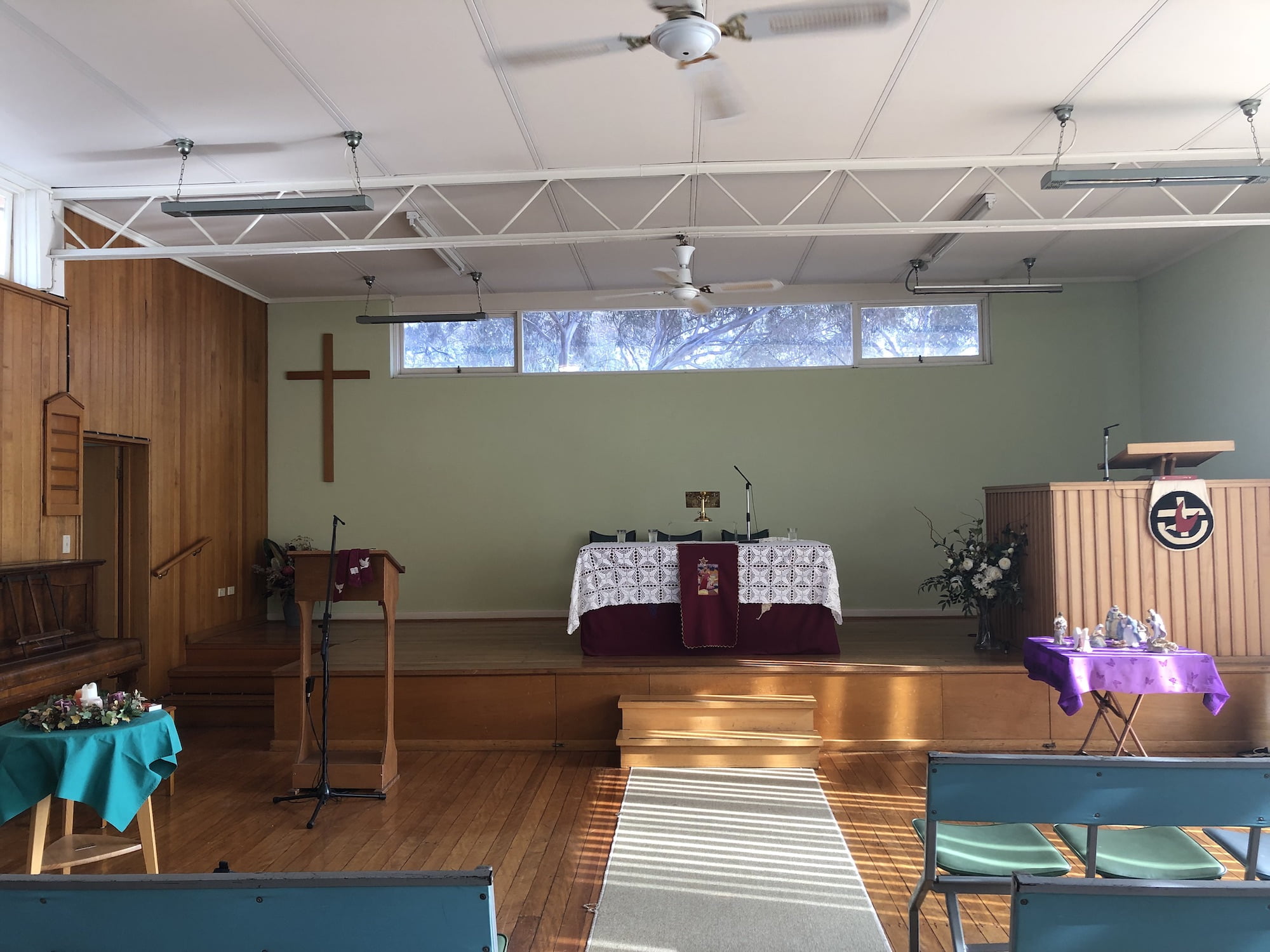
We at Wesley Uniting, Forrest, have received the flame from the St Aidan’s congregation, and promised to hold and keep their story alive. We add their flame to our own light on the hill in Forrest – trusting God, and embodying that faith in our actions of love, care, peace, and justice, advocating, agitating, working to see that the most vulnerable are not left alone.
We’re not doing that alone. Rise Events and Sanctuary have taken up the torch of St Aidan’s congregation, the legacy of Aidan of Northumbria, the story of Jesus. In the place where St Aidan’s congregation gathered, Rise offers sanctuary for women in business, for women seeking to retreat and spend time with God, for humans to retreat, connect, and create – to flourish.
What a legacy. What a light that continues to shine.
The light of faith in action, the balanced, whole, perfect Way of God. We thank those who have gone before us in the way of wisdom, hearing and embodying the word of God that brings life. May we carry the torch faithfully, bearers of Divine light and life in our time.
Amen.

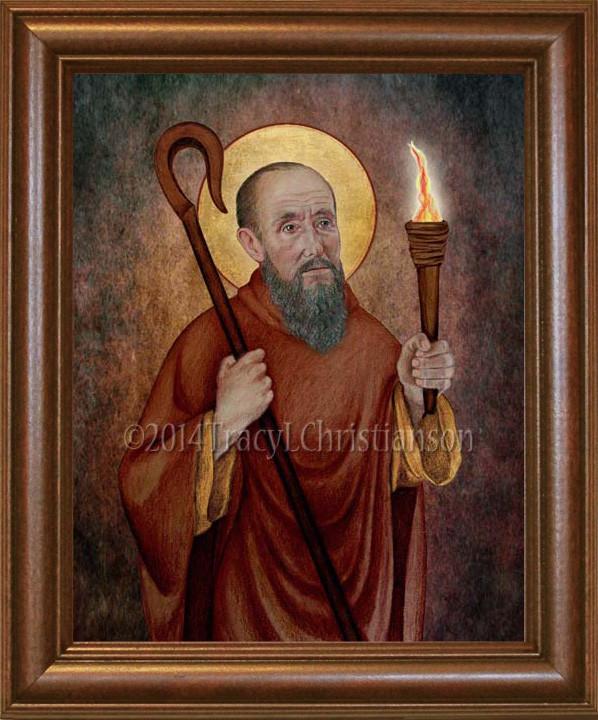

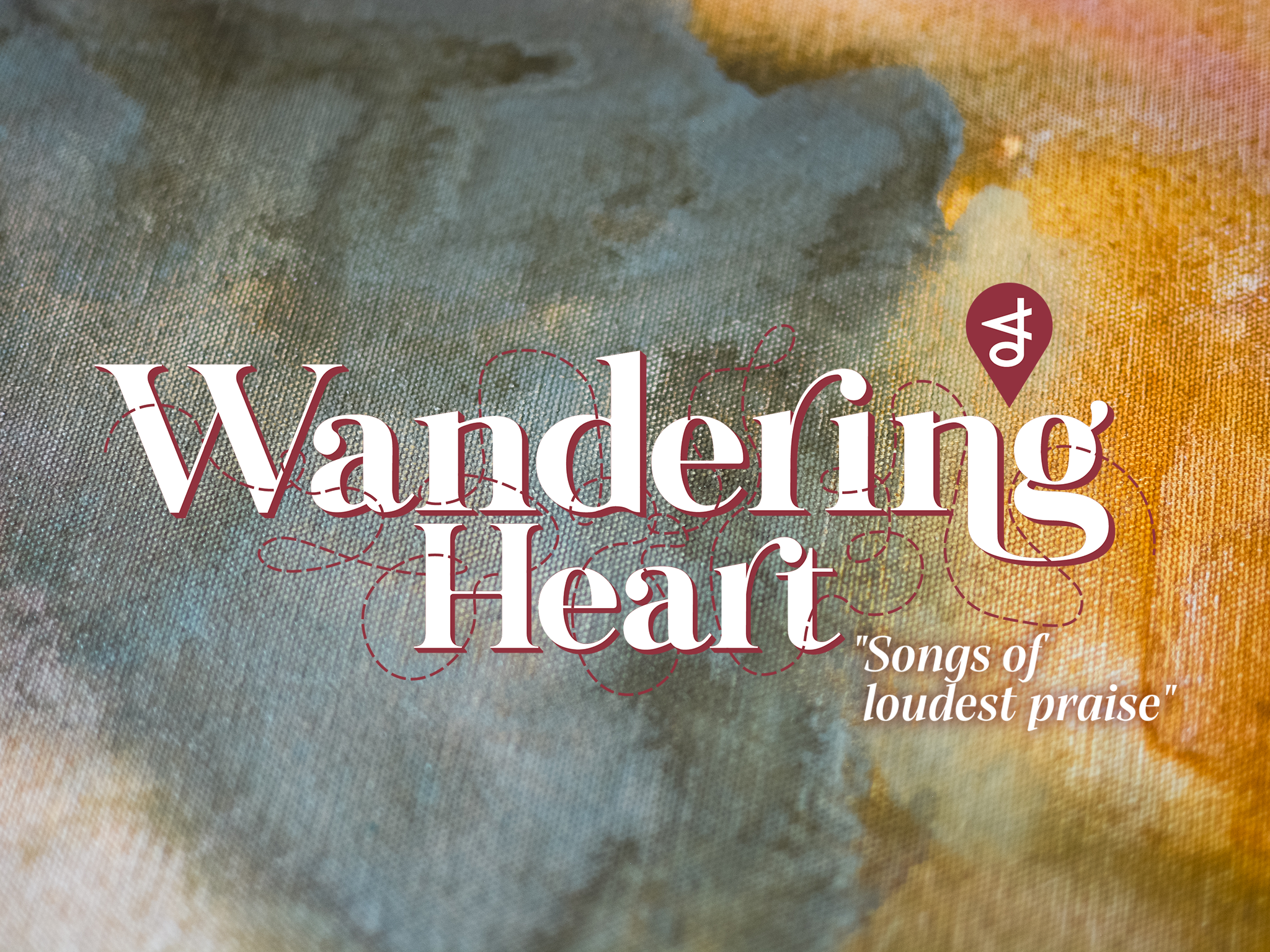
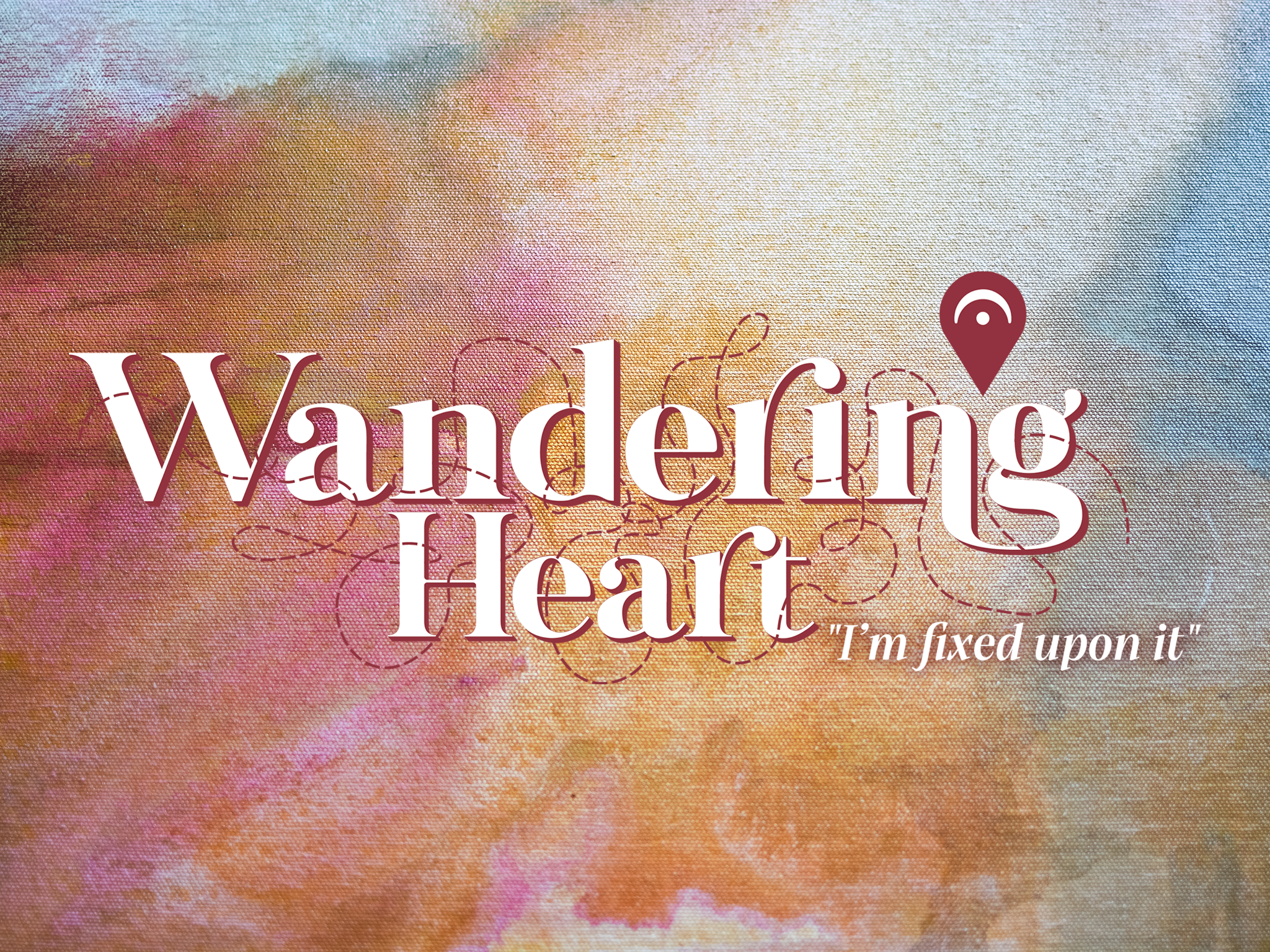
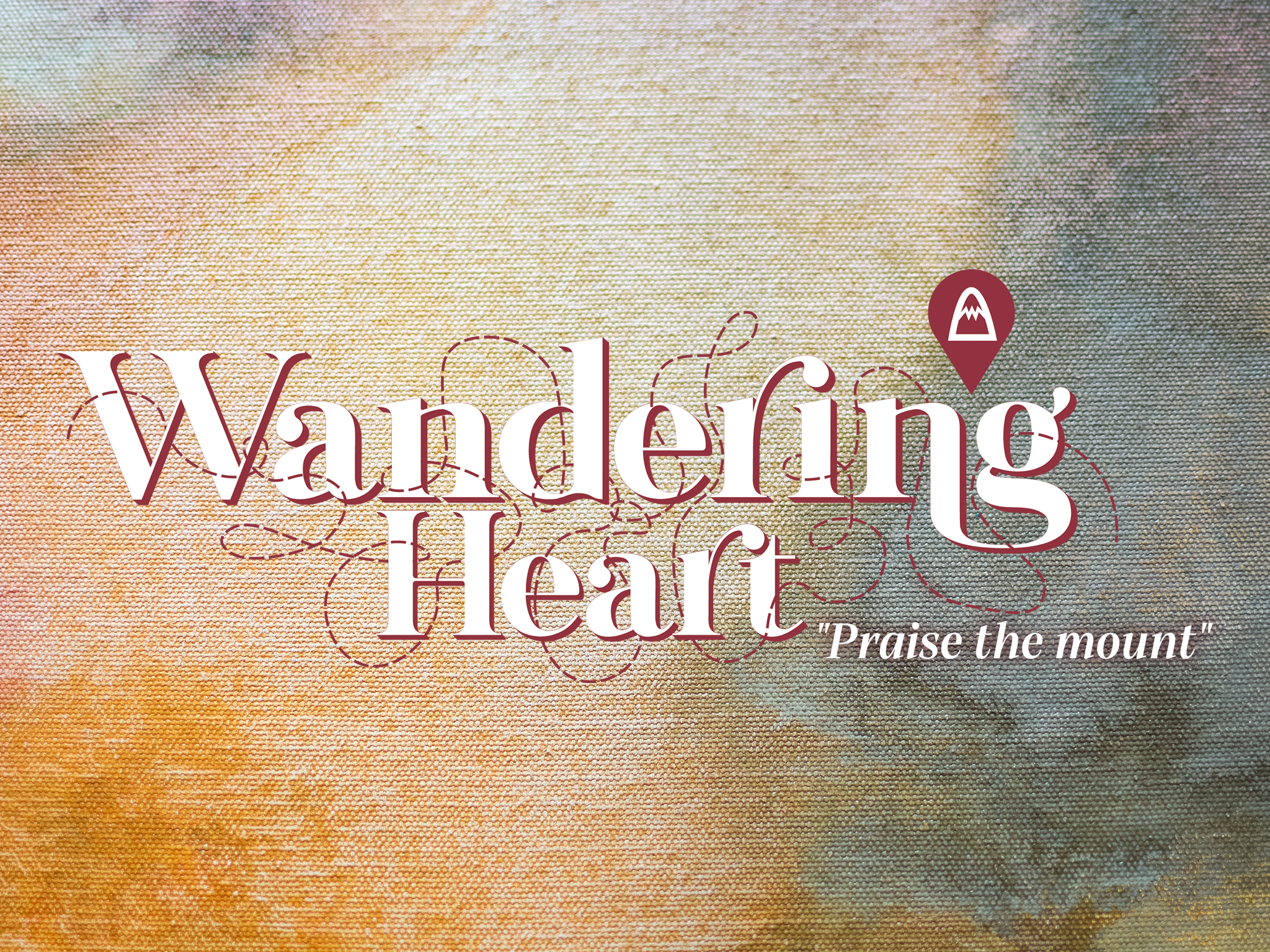
Leave A Comment